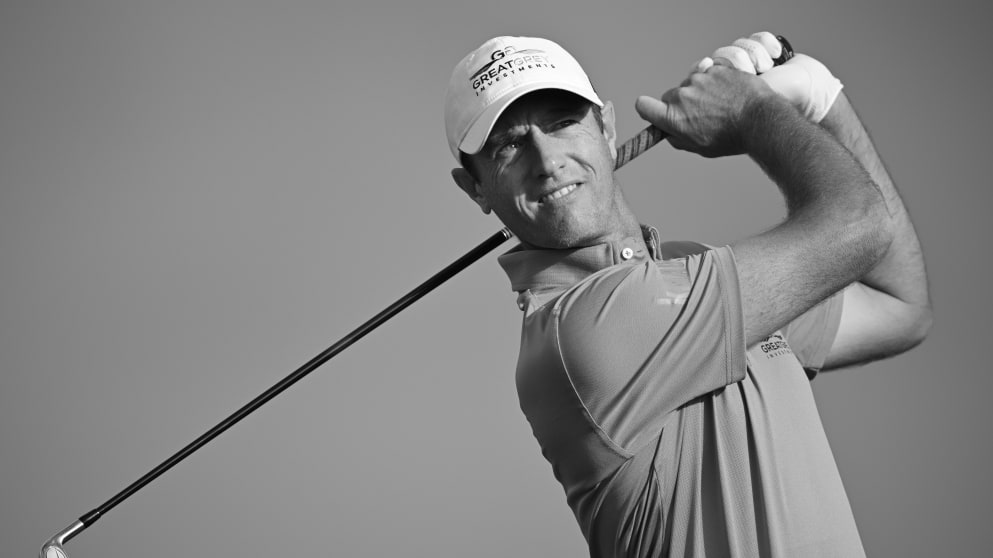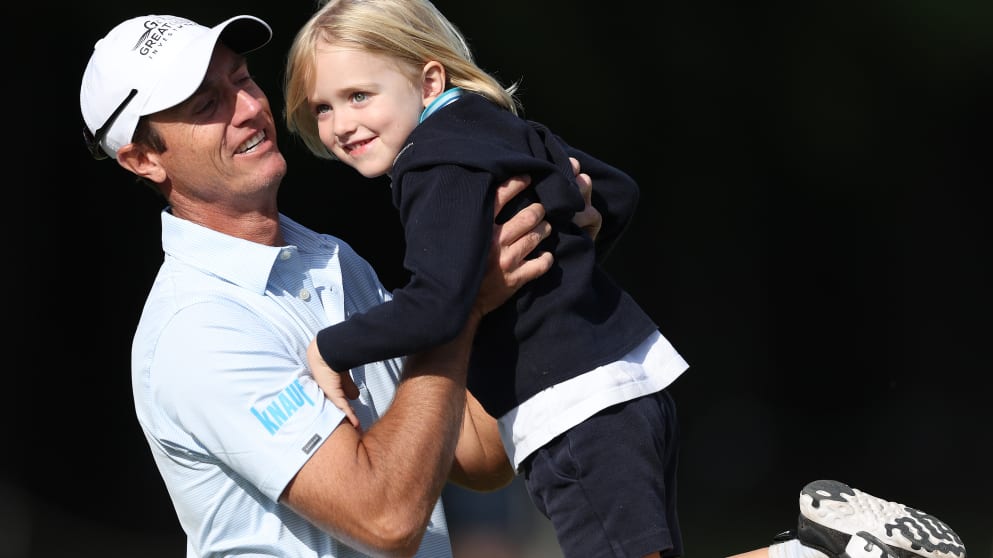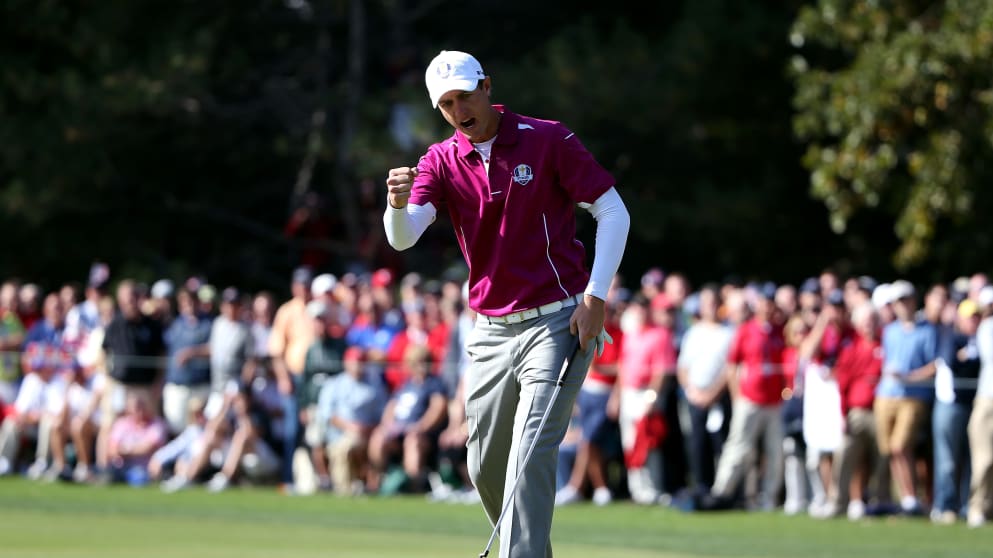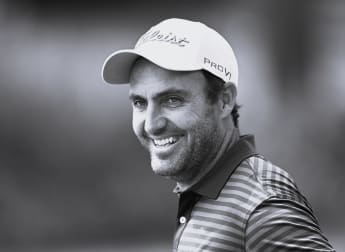In this week’s Player Blog presented by Enterprise Rent-A-Car, Nicolas Colsaerts discusses fearing for his life after being diagnosed with a rare kidney disease, his long-awaited defence of France’s national open, and how the ‘Miracle at Medinah’ has forever shaped how he will be remembered.

It has been tough to reassess my goals since I was diagnosed with a rare kidney disease called primary membranous nephropathy late last year. Golf has shaped who I am, it is a big part of my personality. The cheesy thing to say would be that I should just go out there with no expectations but when you have lived with expectations for the last 25 years it is very difficult to show up at a golf tournament and have such a mindset. As my results indicate, I am still struggling to get up to speed because I have played so few events in the last year.
I went through dark times in the days and weeks immediately after my diagnosis. I had never been in a hospital before except to have my wisdom teeth removed. It just wasn’t an environment I was used to. I was lucky, I had an amazing wife who had a pharmaceutical background, and her support was invaluable. I don’t think I would have been able to cope without her. I vividly remember looking out of a hospital window in the Dubai desert, thinking ‘is this where I am going to die?’. That’s an example of how lost I was at the time and how irrational my thoughts were.
I am now fully recovered and feel healthy. When I returned earlier in the year everyone was aware of the story, and I have been really touched by the love I have felt from people in golf circles but also in other professions. In a way you realise that you have left some sort of impression on people. I have always tried to be a person that is approachable so having the support of fellow professionals during those difficult times was particularly meaningful.
I was very fortunate to cross paths with the people at AVIV Clinics. They have been an underestimated support in my recovery. I went through hyperbaric oxygen chamber treatment for three months not only to help my physiological recovery, but it also helped me mentally and emotionally. When you are on a bed for almost six months, the other guys don’t stop playing. When you don’t play you lose the habits, the competitiveness that has become ingrained in you over your career.
It is special to go back to a tournament as a defending champion but even more so this week after this event’s absence for the last two years. I have been part of the French golfing landscape for 20 years. Having not had a Belgian Open from 2001 to 2017, the Open de France became one of my two national opens along with the Dutch Open. I have always had a special relationship with the Open de France. It was a minor miracle that I won the most recent edition in 2019 with the situation I was in, trying to secure my Tour card.
Most players have experienced difficult seasons in their careers. Trying to secure your full playing privileges for the following season in the final few events is like going back to Qualifying School to try and win your Tour card. What might seem surprising is that at no stage during the Open de France in 2019 did I talk about my Tour card, which had been on my mind for almost two months beforehand. I wouldn’t have been able to prioritise things and focus on the golf without the help of a few people. I had a chat with Thomas Bjørn early in the week and he advised me to read a certain book. I had also been working with a sports psychologist that I hadn’t worked with in a couple of years. My wife was extremely supportive too. It was a combination of a few factors that came together that week to make it possible but to put my finger on exactly one aspect is too difficult.

A year earlier, I was at the 2018 Ryder Cup at Le Golf National in a non-playing capacity and I got a perspective of the course that I had never seen before. Historically it has always been a difficult course to play in stroke play – the winning score is rarely that low. But watching the players tackle it in match play made me realise there are a lot of chances for birdies. That played a part in encouraging me to play a little more aggressive in 2019 than maybe I’d done beforehand in other stroke play events.
The final round in 2019 was a roller coaster of emotions. My mindset going into the final day with a three-shot lead was to play under par and force those behind to have to play well to catch me. The first problem was I made a birdie at the first hole and George Coetzee, who I was playing alongside, made bogey and suddenly I was five strokes ahead on the second tee which completely put me off. That was not a scenario that I had imagined, and it rattled me a little bit until the seventh hole. George got on a birdie blitz at nine, ten and 11 and I found myself two shots behind on the 13th tee. But I made birdie and George didn’t and that was the start of a momentum shift because I made an eagle at the 14th. Then there was the drama at the 15th when I hit my ball into the water and George himself found the water. Meanwhile, J.B. Hansen was playing well, and I realised that I was one shot behind on the 17th tee only to then find out on the green that I was one shot ahead because Hansen had made a double bogey on the same hole. But the 18th is one of the most demanding par fours we play on Tour, so I still had my work cut out to maintain my one-shot advantage which I thankfully did.
The prospect of losing your Tour card for any player is an atrocious reality. I found the pressure of having to play well in the last couple of events of the 2019 season to keep my Tour card bigger than even the honour and prestige of playing in the Ryder Cup. In the Ryder Cup you are part of a team, with 11 other guys by your side who all have a common goal. Don’t get me wrong, to lose the Ryder Cup is not an experience a player wants to face but to lose your card has far bigger consequences.
It is very hard to rank my three Tour titles because they are all special. The emotion at winning in France was different to winning my first Tour title at the Volvo China Open and then the Volvo World Match Play Championship a year later. To recover from losing my lead at Le Golf National and get the win released a lot of weight off my shoulders which had weighed heavy on me the previous couple of months. I remember flying back home and people had arranged for us to have drinks but when I arrived I just went to my bed and fell asleep for 12-and-a-half hours. The next morning, I took my two-year-old son at the time for breakfast in a restaurant and I had bacon and scrambled eggs. I remember feeling so relieved.
The French crowds have always been very welcoming to me over the years, but they can also be very demanding of you. One of the main things I remember about 2019 was I told myself not to be affected by anything I heard. There are faces in the crowd that I can remember seeing every year, even if I have never spoken to them before. I am grateful that these people have always come to support me. I was happy to give something back to the game of golf in France with my win.
Even now, 10 years later, playing at the Ryder Cup at Medinah in 2012 is what people remember me for. I grew up idolising players when I went to see Belgian Opens when I was a child but above all I had one dream and that was to play in the Ryder Cup. I was fortunate enough to be a part of a sporting event that everyone will remember. I was also extremely lucky to have played the way I did on my debut and leave a mark. There are still players to this day that have played multiple Ryder Cups and the first thing they say to me is to reflect on 2012. That’s when you know you were part of something special. A lot of players don’t get the chance to play in a Ryder Cup. I was fortunate to be part of a winning side and leave a lasting memory in the process.

I am not very good with short-term goals because that triggers my extra sense of impatience. The only time I really set myself an objective was to get into the Ryder Cup team. I wrote that down on a piece of paper in 2010 and two years later at Medinah I was able to tick every box that had enabled me to get to that position. Looking ahead though, I would like to get past 500 Tour appearances. Even though I feel part of the furniture when I show up at a tournament that would be a nice milestone to reach in my career.
I have always held an interest in media and commentating. I have a passion for golf and trying to help give an insight into the game to those watching at home. As a professional golfer for many years and someone who watches the game, I believe I have an insight into what people want to hear and how to deliver it. I take pleasure in talking about the analysis behind shot choices. Even if I am watching a football match, I take a keen interest in the tactical elements. The feedback I have received has been positive. I found myself in the commentary box at The Open with Sam Torrance, Sir Nick Faldo, Trevor Immelman and Dale Hayes – guys that I used to look up to when I was young. There is nothing more complimentary than Sam Torrance looking at you and him saying, ‘oh, that was an interesting thing to say’ because I view him as someone who knows more about golf than I do!
Travelling around the world has only got tougher as I’ve got older. I have a four-and-half year old and a 15-month old with my wife Rachel. Having only recently moved to Dubai, when I travel to Europe to play a tournament I go for a three-week stint so as not to travel back on a Sunday night and then leave for the next tournament on a Tuesday morning. When you are 25-30 and single it is a lot easier to travel around the world from one week to the next and leave things behind. What happened in November only reaffirmed that while golf is very important to me, the most important thing is my family.






